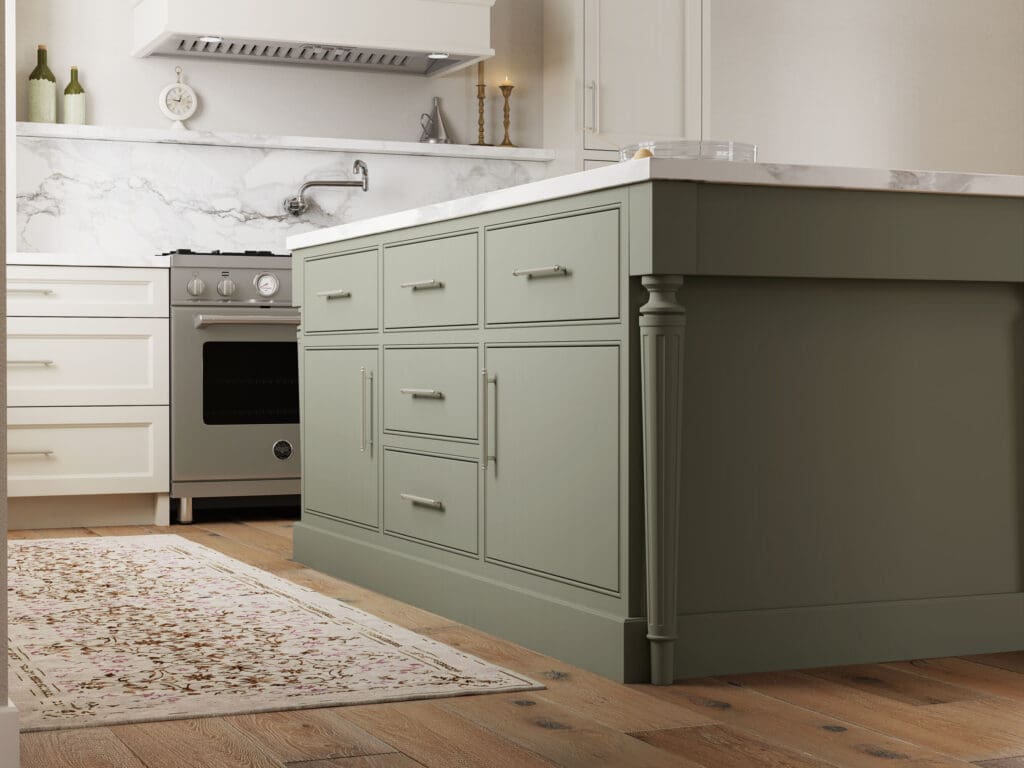Standard Kitchen Countertop Thickness: What’s the Best Option for You?

When choosing a countertop for your kitchen, most people focus on the material and color. But thickness is just as important. These days, slim and visually light countertops are increasingly common, especially in modern interiors. Still, the classic 1 ¼ inches remains the standard. So how do you choose the right thickness and avoid mistakes? Let’s break it down.
What is the standard kitchen countertop thickness?
The standard countertop thickness is usually 1 ¼ inches—a reliable option that doesn’t require extra reinforcement and looks good visually. Thinner options like ¾ inch can also be found, but they typically need a plywood base or a reinforcing frame.
What is considered a typical countertop thickness?
The typical countertop thickness ranges from ¾ inch to 1 ¼ inches, depending on the material and where it’s being installed. For kitchens, 1 ¼ inches is more common because this countertop thickness offers the best balance of strength and appearance.
How thick are kitchen marble countertops?
Marble countertops are most often made in 1 ¼-inch thickness. It’s a trusted standard that provides durability and reduces the risk of cracking. But if you’re working on a custom project—like a designer kitchen with bold, heavy surfaces or, on the contrary, minimal visual weight—you might go thicker or thinner. It all depends on the design. In most cases, the standard marble countertop thickness remains the most practical solution.
What is the thickness of quartz countertops?
Quartz is typically installed at the same 1 ¼-inch thickness. It’s a stable and convenient choice. Thanks to the material’s strength, thinner options—like ½ inch—are also available. In those cases, a ¾-inch plywood or MDF base is always added underneath to reinforce the structure and prevent damage. This method helps maintain a lightweight look without sacrificing durability. That’s why the standard thickness of quartz countertops remains the safest and most versatile option.
What is countertop thickness in inches?
The most commonly used measurement is 1 ¼ inches. This is the standard kitchen countertop thickness that has proven effective in both residential and commercial kitchens.
Conclusion
If you want to avoid guessing—stick with the standard: 1 ¼ inches. That’s the typical countertop thickness, trusted by professionals and tested over time. It works well for quartz, marble, and other popular materials. Be sure to check your countertop thickness in advance, especially if weight, island installation, or overall height matters. The more precise your choice, the more comfortable your kitchen will be.
Read more:
2 cm vs. 3 cm: Choosing the best countertop thickness for your kitchen?











